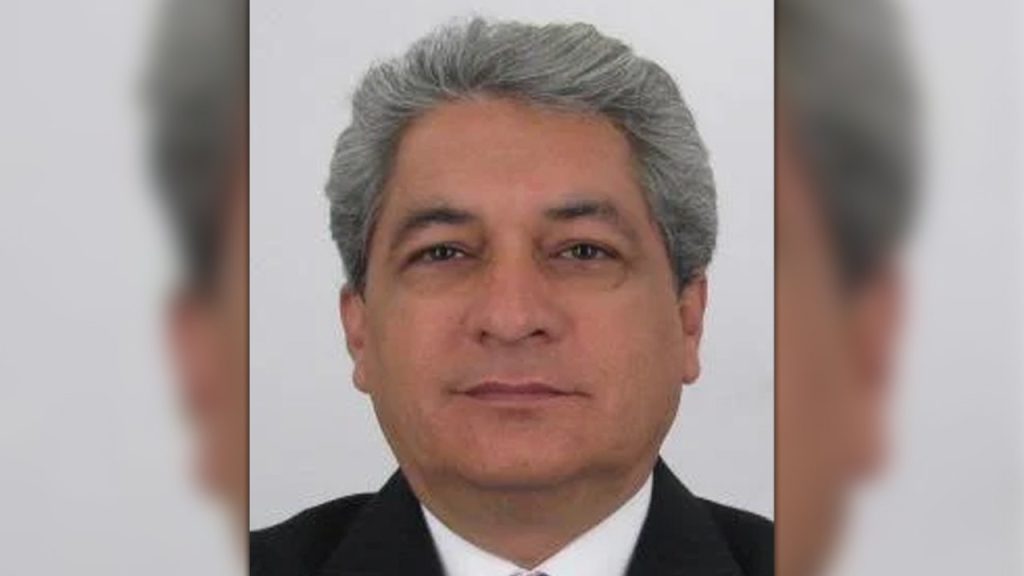Tomas Jesus Yarrington Ruvalcaba, the former governor of Tamaulipas, Mexico, and a one-time presidential candidate, has been deported from the United States after serving time for money laundering. Yarrington’s deportation was executed by U.S. Immigration and Customs Enforcement (ICE) this week, and he was handed over to Mexican authorities at the San Ysidro Port of Entry in California. The ex-governor is facing serious charges in Mexico, including organized crime and transactions involving illegally obtained resources.
| Article Subheadings |
|---|
| 1) Background of Tomas Jesus Yarrington |
| 2) Legal Proceedings Leading to Deportation |
| 3) Charges Awaiting Yarrington in Mexico |
| 4) Implications of the Deportation |
| 5) A Broader Context: Corruption and Extradition |
Background of Tomas Jesus Yarrington
Tomas Jesus Yarrington, aged 68, served as the governor of Tamaulipas, Mexico from 1999 to 2005, representing the Institutional Revolutionary Party (PRI). His time in office was marred by allegations of corruption, with various reports indicating he was involved in bribery and illicit activities. Following his term, he pursued a position as a presidential candidate in 2005 but failed to secure significant support.
In 2013, Yarrington was indicted in the United States for money laundering and drug-related charges. The scope of the allegations against him pointed to a network of corruption involving the acceptance of bribes from companies seeking business with the Tamaulipas government. These transactions were said to have financed significant illegal assets, including properties in the U.S. and luxury vehicles.
Legal Proceedings Leading to Deportation
After Yarrington’s arrest in Italy in 2017 under a false identity, he was extradited to the United States in April 2018. He stood trial on multiple charges, ultimately pleading guilty to conspiracy to commit money laundering in 2021. A federal court sentenced him to 108 months in prison, which he served at the Federal Correctional Institution in Thomson, Illinois.
Following his imprisonment, Yarrington was transferred into the custody of ICE last summer to initiate immigration hearings. In February 2023, after Yarrington waived the right to appeal his removal, a judge from the Department of Justice authorized his deportation to Mexico, where he faced multiple serious charges.
Charges Awaiting Yarrington in Mexico
Mexican authorities are prepared to charge Yarrington with a range of offenses, including organized crime and engaging in financial transactions with assets derived from illicit means. These charges stem directly from his actions during his tenure as a governor, where it is alleged he used public office to accept bribes and conduct illegal business dealings.
Upon his arrival at the San Ysidro Port of Entry, Mexican law enforcement was present to take him into custody. The potential penalties Yarrington faces in Mexico highlight the serious nature of the allegations and the ongoing struggle against political corruption in the region. This marks the end of a lengthy legal saga involving an individual once seen as a prominent political figure within his country.
Implications of the Deportation
Yarrington’s deportation carries broader implications for the persistence of corruption within Mexican politics. His case serves as a prominent illustration of the alleged connections between organized crime and political figures in Mexico. Observers note that this situation could influence public perceptions regarding governance and law enforcement in Mexico, potentially prompting calls for reform.
Legal experts observe that Yarrington’s case underscores the importance of international cooperation in combating political corruption and organized crime. It also raises questions about the effectiveness of existing legal frameworks in holding public officials accountable for their actions while in office. The Mexican government may be compelled to take substantive steps to address the systemic issues of corruption highlighted by Yarrington’s actions.
A Broader Context: Corruption and Extradition
The deportation of Yarrington also fits within a larger context of increasing scrutiny over corruption in Mexican political spheres. Over recent years, both the U.S. and Mexican governments have prioritized the extradition of corrupt officials. Various high-profile cases have emerged, indicating a shift in policy and enforcement regarding transnational crime and corruption.
Moreover, Yarrington’s saga reflects ongoing collaborative efforts between U.S. and Mexican authorities to target individuals involved in narcotics trafficking and other illicit activities. The coordinated response highlights the extensive networks that exist between criminal organizations and political systems, and showcases the ongoing commitment to restore integrity in governance.
| No. | Key Points |
|---|---|
| 1 | Tomas Jesus Yarrington was deported from the U.S. to Mexico after serving a prison sentence for money laundering. |
| 2 | He was the governor of Tamaulipas and faced serious allegations of corruption during his tenure. |
| 3 | Yarrington’s extradition from Italy to the U.S. marked a significant legal milestone in his case. |
| 4 | Mexican authorities are preparing to charge him with organized crime and related offenses. |
| 5 | The case highlights systemic issues of corruption and influences ongoing law enforcement strategies in the region. |
Summary
The deportation of Tomas Jesus Yarrington serves as a significant moment in the ongoing struggle against political corruption in Mexico. It underscores not only his personal legal challenges but also broader issues revolving around governance in the region. As legal proceedings unfold in Mexico, this case may catalyze renewed discussions regarding the need for reforms in the political and judicial systems, reflecting the importance of accountability and transparency in governance.
Frequently Asked Questions
Question: What led to Tomas Jesus Yarrington’s imprisonment?
Yarrington was imprisoned after pleading guilty to conspiracy to commit money laundering, with evidence indicating he accepted bribes during his time as governor.
Question: What are the main charges Yarrington faces upon returning to Mexico?
Upon his return, Yarrington faces charges including organized crime and transactions involving illegally obtained resources.
Question: How does Yarrington’s case reflect on the political landscape in Mexico?
Yarrington’s case highlights the persistent issues of political corruption in Mexico and the need for systemic reforms to ensure accountability among public officials.


